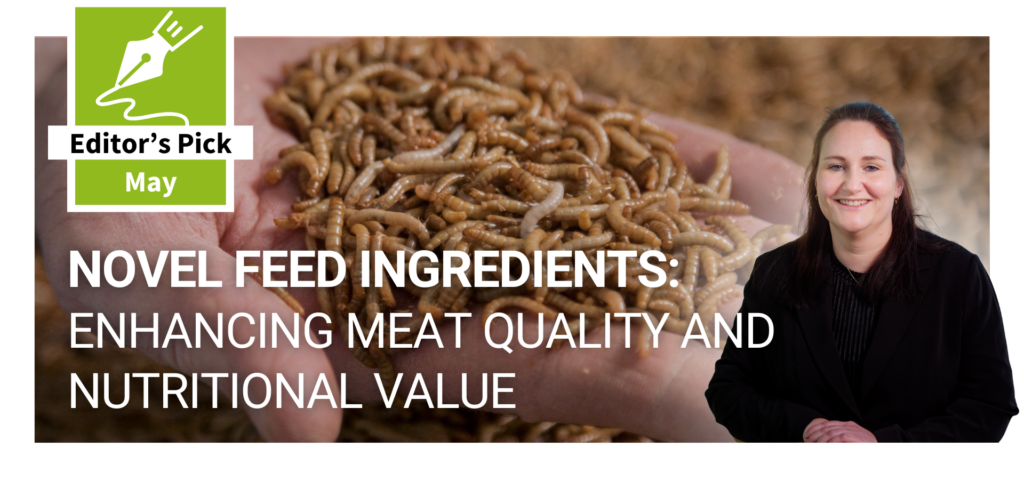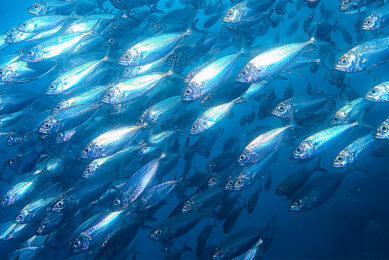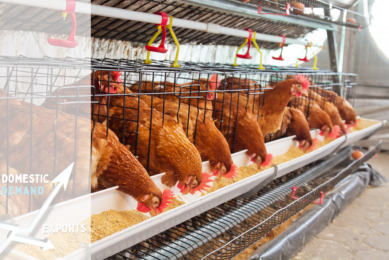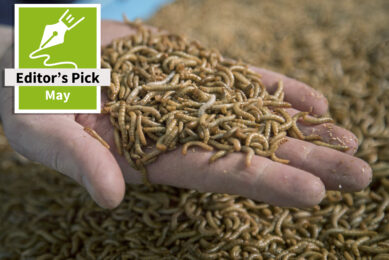Benefits of natural feed additives in poultry diet
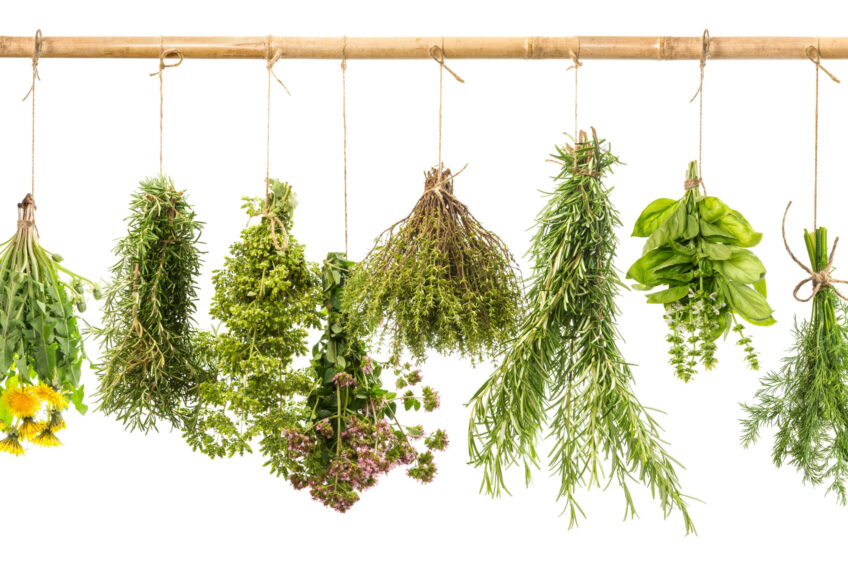
The growing world population has increased the demand for poultry products and the intensity of the poultry production systems. As the industry intensifies so does the disease threat to poultry, stress playing a big part in depleting the immune system of the animal. Can natural feed additives help in improving immune system function in a sustainable manner?
WORLD OF MICROBES SPECIAL 2024 – read all articles
Due to the ban of antibiotics use in poultry feed for growth promotion and prophylactic purposes, using diet to improve the immune system function of poultry has become particularly important. There is a widespread need to find natural feed additives to replace antibiotics in poultry feed in a sustainable manner. The natural feed additives need to enhance production performance, improve the nutritional quality of feed, and increase immune response to infection.
Beneficial compounds in natural feed additives
Flavonoids
Flavonoids are extracted from fruits, vegetables, and their byproducts and used as phytogenic additives in poultry nutrition. Flavonoids boost poultry health and immunity due to the presence of bioactive compounds with antimicrobial characteristics such as catechin, epicatechin, gallium acids, gallocatechin, and epigallocatechin. Plants such as chamomile, dandelion, ginkgo, green tea, hawthorn, licorice, passionflower, milk thistle, onions, rosemary, sage, thyme, and yarrow contain significant amount of flavonoid. This compound improves immunoglobulin levels in birds, increases the vitamin C levels, decreases the relative abundance of caecal coliform, thus protecting heat-stressed birds from a range of diseases. In addition, flavonoids including quercetin and pomegranate fruit polyphenols regulate immune cells, destroy free radicals, thereby preventing diseases. Isoflavones such as daidzein, genistein, and glycitein are another group of bioactive compounds with antibacterial, and antiviral properties. These compounds improve immune function against infectious bursal disease virus, thus reducing both bursal lesions and viral protein expression.
Natural antioxidants
The balance between antioxidants and prooxidants in poultry cells is essential for maintaining proper immune function. On the other hand, diets rich in polyunsaturated fatty acids create reactive oxygen species, therefore; antioxidants are a major focus in poultry nutrition. Antioxidants are divided into natural and artificial groups. Natural antioxidants are either present in poultry diet such as vitamin E, carotenoids, and selenium, or synthesised in their body including glutathione, thioredoxin, and antioxidant enzymes. Artificial antioxidants include hydroxyanisole butylated, hydroxytoluene butylated and propyl gallate which reduce peroxidation in feed. However, there is an increasing public concern over supplementing artificial antioxidants in poultry diet, which limits their use. Vitamin E analogs such as tocopherols and tocotrienols regulate metabolism and improve anti-inflammatory properties, thereby strengthening the immune system. Carotenoids neutralize free radicals, deactivate dioxidin, react with hydroxyl, superoxide and peroxyl radicals, thereby protecting fats from oxidative damage. In addition, carotenoids have antibacterial properties. Resveratrol, a natural polyphenolic compound in grapes and peanut, has anti-inflammatory, anti-oxidation and energy metabolism regulating properties, which improves health and immunity in birds under heat stress. This compound increases the relative abundance of beneficial gut microbiota and reduces the count of pathogens in poultry gut by strengthening tight junctions.
Herbal feed additives as antibiotic alternatives
Various herbs such as dill, oregano, ginkgo, sage, fennel, olive leaves, hogweed, coneflower, savory and some Chinese medicinal herbs can be added to poultry diet as replacements for antibiotics. The dill plant contains beneficial compounds including glycosides, saponins, tannins, terpenoids, steroids, flavonoids, phlobatanin, cardiac glycoside, anthraquinone, gallic acid, catechin, chlorogenic acid, luteolin and epicatechin. Dill plant reduces coliforms and increases lactobacilli in the caecum and jejunum, thus improving gut microbiota and growth performance. Oregano with carvacrol and thymol as active ingredients is effective against E. coli and salmonella species in the caecum of poultry. Skullcap, a Chinese herbal medicine, contains flavones, wogonoside, aglycones baicalin and other antioxidants which reduces the adverse effects of heat stress. A blend of peppermint and Ginkgo biloba, a Chinese herbal medicine, with antioxidant and antitoxic properties suppresses the pathogenicity of E. coli, and improves growth performance, feed efficiency, and the immune response against Newcastle Disease and infectious bronchitis viruses. Sage and fennel, commonly used Mediterranean herbs, increase cell immunity response against Newcastle disease and avian influenza viruses and improve resistance to infectious bronchitis virus. Olive leaf extract contains bioactive compounds such as phenolic acids, phenolic alcohols, flavonoids, and secoiridoids with anti-inflammatory properties which regulates the oxidative state of the gut epithelial layer, inflammatory and immune response, and gut barrier integrity. Hogweed extract comprises of phytochemical compounds, including terpenoids, triterpenes, furanocoumarins, flavonoids and alkaloids and improves the immune system function in birds. The purple coneflower increases lymphocytes count and reduces heterophils count, summer savory lowers the concentration of E. coli in the digestive tract, and thyme improves growth performance; however, there is no evidence of thyme improving immune response. Dietary supplementation of chicory plant improves the immune response and gut microbiota by increasing lactobacilli and decreasing E. coli populations.
Spice feed additives as antibiotic alternatives
Ginger contains active compounds such as gingerol, shogaols, gingerdiol and gingerdione with strong antioxidant, antimicrobial and antifungal activities in the gut. However, excessive amounts of ginger may adversely impact the gut microbiota. Coriander seed and extract have antibacterial and antioxidant properties and can effectively replace synthetic antibiotics in the poultry diet. Adding coriander extract in water increases the antibody titers against common diseases, such as Newcastle, infectious bronchitis, and bursal disease infections. Sumac and its fruit contain active compounds of flavanols, phenolic acids, hydrolysable tannins, anthocyanins and organic acids. Sumac seed powder reduces the population of E. coli and improve gut health. Black cumin has anti-toxic and antimicrobial properties and increases the defence mechanisms against Newcastle Disease. The clove plant is rich in eugenol, an antibacterial agent, and reduces the prevalence of gut pathogens. Chili pepper contains dietary capsaicin, which prevents chronic systemic inflammation, and gut dysbiosis.
Effective alternatives
Supplementing natural feed additives to poultry diet improves immune system function, growth performance and overall health. Various natural compounds are effective alternatives to antibiotics and meet the expectations of the sustainable poultry industry as feed additives. Although, it is important to consider the feasibility and efficiency of any replacement by considering the supply chain, availability, price and suitability of individual additives in different regions of the world.



